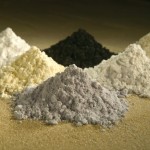Is Corruption Really Good for the Economy? Not Quite! Have you ever heard someone say "a little bit of corruption isn't so bad"? This is especially common when talking about business deals or getting things done quickly. But is there any truth to this statement? Is Corruption actually good for the Economy? Let's dive in and see what the experts say!
Table of contents [Show]
Corruption Explained: More Than Just Bribes
Corruption isn't just about handing over a bribe. It's the misuse of power for personal gain. This can take many forms, like:
| Taking bribes: | Officials accepting money or favors to do something they shouldn't (like approve a project without proper checks). |
| Embezzlement: | Stealing public money for personal use. |
| Favoritism: | Giving jobs, contracts, or permits to friends or family instead of the most qualified people. |
These actions might seem harmless on a small scale, but the overall impact on the Economy can be devastating.
Why Corruption Hurts the Economy:
Here's why corruption is a major problem for India's economic growth:
| Discourages Investment: | Businesses are less likely to invest in a country where they have to pay bribes to get things done. |
| A World Bank study estimates that corruption costs India ₹1 trillion every year in lost investment! | |
| Hinders Fair Competition: | When contracts are awarded based on bribes, not merit, it creates an unfair playing field for honest businesses. |
| Lowers Quality of Services: | When officials are corrupt, they might approve projects that are poorly built or don't meet safety standards. |
| This can have serious consequences, like bridge collapses or faulty infrastructure. | |
| Increases Inequality: | Corruption often benefits the wealthy and well-connected, while leaving the poor even further behind. |
The Case Against Corruption: A Clearer Picture
| The recent statement by a former Chief Economic Advisor (CEA) in India, arguing that corruption can be a "Grease for the Economy," sparked a debate. |
| However, most Economists strongly Disagree. |
| Corruption is more like sand in the gears – it slows down progress and makes the whole system less efficient. |
Building a Corruption-Free Future:
Combating corruption is essential for India's economic growth. Here are some steps that can be taken:
| Stronger laws and enforcement: | Clear laws against Corruption and Stricter Penalties for those caught can act as a deterrent. |
| Transparency and accountability: | Making Government processes more transparent and holding officials accountable for their actions can help reduce Corruption. |
| Empowering citizens: | An informed and active citizenry can play a crucial role in Exposing Corruption and demanding better Governance. |
The Bottom Line:
| Corruption might seem like a shortcut, but it ultimately weakens the economy and hurts everyone in the long run. |
| By working together to build a more transparent and accountable system, India can create a more prosperous future for all. |
Key Takeaways:
| Corruption is the misuse of power for personal gain. |
| Corruption discourages investment, hinders fair competition, lowers the quality of services, and increases inequality. |
| Corruption acts like a drag on economic growth, not a lubricant. |
| Strengthening laws, promoting transparency, and empowering citizens are crucial steps towards a corruption-free future. |
Remember, a Strong Economy is Built on Fairness, not Favors!








